Speaking about January 23, it was an incredibly difficult and tragic day for Kharkiv. That day, during the third shelling of the city, I was injured. I believe it was a cow bomb, though I don’t recall the exact type of shell now. It hit the 5th floor of a building and destroyed the entrance.
Ten people lost their lives in that strike. It was devastating because, at the time, it was one of the highest death tolls from a single attack in the city. My colleagues were on duty all day, traveling and reporting on the aftermath. I wasn’t on news duty that day, so I followed the events more as a civilian. It was painful and heartbreaking—the kind of news that makes you want to cry. It’s agonizing to see people living next to you die because of enemy shells.
Interestingly, that same day, my colleague and I had been discussing the ethics of showing photos of wounded people. We debated for a long time, and I defended the position that people should be treated with dignity. At one point, my colleague said, “I get it. If you’re wounded, you shouldn’t be photographed.” Ironically, that principle was put into practice later when the shelling happened. As I was being taken in an ambulance, a journalist tried to take my picture, but my colleague stopped them, saying no.
For that, I was deeply grateful. I wouldn’t want to see myself with a bloody leg circulating online, bringing back the pain of those moments.
It was around 10 p.m., and I was returning home when I heard a sharp sound and caught a sudden rush out of the corner of my eye. The shell hit the roof of the house. It felt like something out of a slow-motion scene in a movie—I could hear the glass shattering and see it falling from the windows. Fortunately, I was in front of the house and not in the middle, or the glass might have rained down on me. Instead, I just heard it falling. Dust and dirt covered me, and although it wasn’t heavy, it was enough to leave me coated. My face and clothes were filthy, and I noticed my leg was wet. Looking down, I saw a few drops of blood and thought maybe I’d been grazed by glass or debris, resulting in a minor injury. I realized I needed to find shelter quickly because the Russians had started using the double-tap tactic in Kharkiv—firing one shell followed by another. The area wasn’t safe.
As I began moving toward a shelter, I recorded a voice message for my colleagues to let them know I’d been hit. I wanted someone to know something had happened to me. At that moment, I didn’t realize how serious my injury was, but the pain in my leg was growing, and I could barely move. I don’t remember everything I said in that message, but a second explosion occurred while I was recording. I screamed and blacked out. For my colleagues, the message ended there. I understand now how worried they must have been, but somehow, fueled by adrenaline, I managed to run to the shelter despite my injury.
Later, I learned I had a torn ligament and a shell fragment lodged in my leg. Somehow, I ran with a fracture. When I reached the shelter, another problem arose—there was no mobile connection. I tried calling the police and ambulance, but my calls didn’t go through. Luckily, I had been trained in first aid and understood the steps I needed to take. I didn’t panic. I focused on controlling the bleeding, putting pressure on my leg, and continuing to call for help. Eventually, I managed to connect with an ambulance dispatcher. However, the communication was frustratingly difficult—they couldn’t hear me well. I kept repeating, “I’m injured,” while they kept asking, “What happened?” After a long, strained exchange, they assured me they were on their way, though I wasn’t certain they had understood my exact location.
I then called a colleague who lived nearby and asked for help. Somehow, I was found and taken to the hospital, where I stayed for 10 days. After being discharged, I had a plaster cast on my leg for 28 days. It was winter, and moving around with my leg immobilized was incredibly challenging. When I returned home, adapting to my environment was tough. The injury left me deeply shaken, and I became hypersensitive to air raid alarms. Even when no sirens were sounding, I would panic and hide in the bathroom, feeling paralyzed by fear. Moving quickly on crutches was almost impossible, and living in Kharkiv, where you have just 2–4 minutes to find shelter during an attack, made it even harder. Despite everything, I decided that Kharkiv is my city, the place I want to be, no matter what.
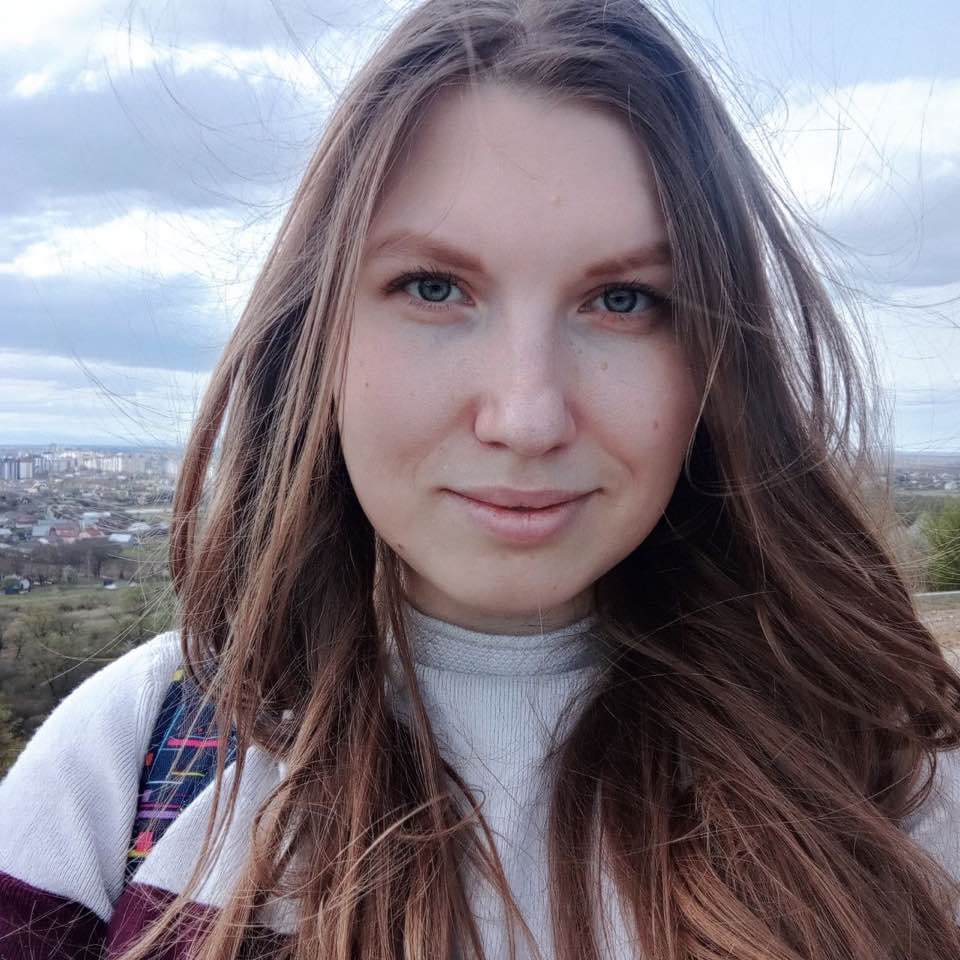
When you’re on crutches, trying to move quickly is a real challenge—especially in Kharkiv, where you often have just 2–4 minutes to find shelter before the next strike. It was incredibly hard to manage under those conditions. Still, I made a decision: this is my city, the place where I want to stay, no matter what. Well, not entirely no matter what. If there were a real threat of occupation, I’m not sure what I would do. Most likely, I think I would leave. You see, it’s incredibly difficult to lose one home. When that happens and you manage to find a second home, it’s even harder to imagine losing it, too. This war has already taken my childhood, my childhood memories, and my place of strength from that time in my life. Now, as an adult, I’ve built a new place of power for myself here. It may sound pretentious, but I refuse to give it up.
Created as part of the project “Raising awareness among target groups in Ukraine and abroad about Russian war crimes against journalists in 2024 and increasing public pressure for the release of captured journalists”, which is implemented by the National Union of Journalists of Ukraine with support of the Swedish non-profit human rights organization Civil Rights Defenders.

 THE NATIONAL UNION OF
JOURNALISTS OF UKRAINE
THE NATIONAL UNION OF
JOURNALISTS OF UKRAINE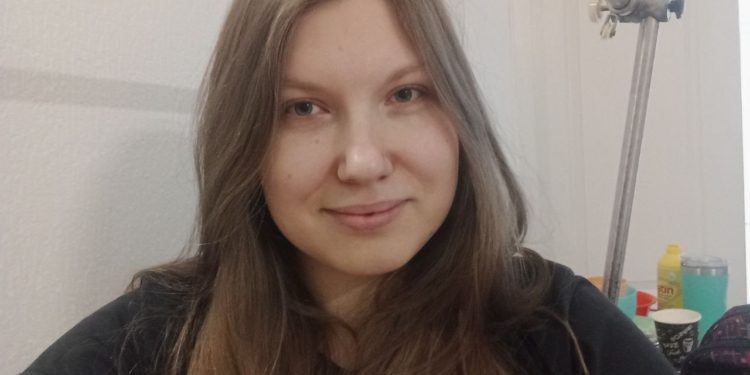
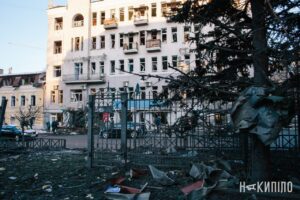
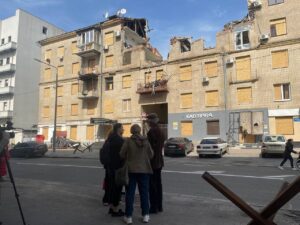
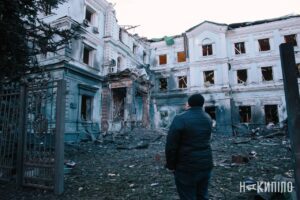
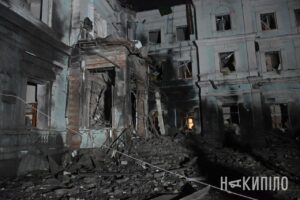
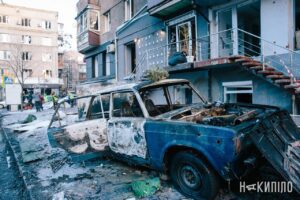
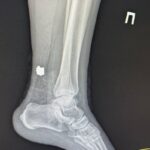
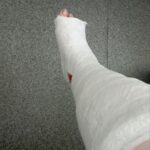
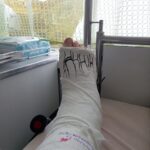
















Discussion about this post